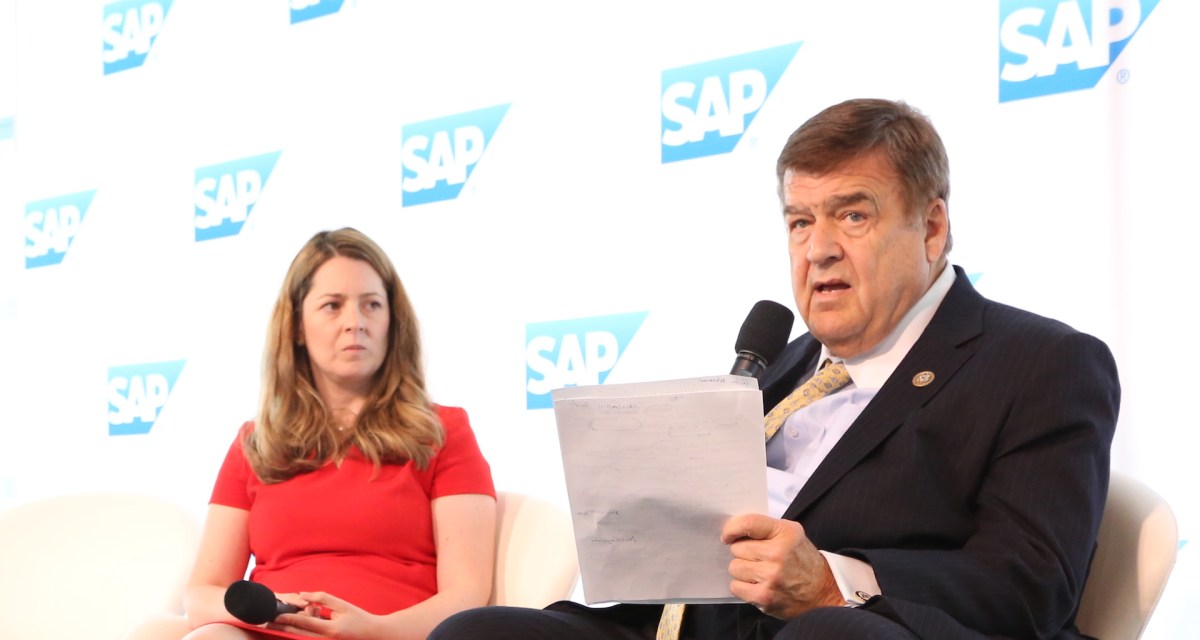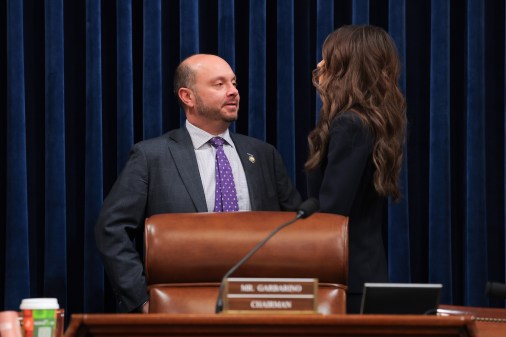Russia poses largest cybersecurity risk to U.S., Rep. Ruppersberger says

Although all of America’s adversaries present serious cyberthreats, Russia’s hackers are the most dangerous right now, says the Maryland congressman whose district houses the National Security Agency.
“Cyber issues [are] so important to what we do. And what’s kind of keeping me up a little bit right now, it’s not China,” Democratic Rep. Dutch Ruppersburger said at the 2017 Digital Nation Summit presented by SAP and FedScoop. “I mean, we have to always look at China, and you have to look at Iran, you have to look at North Korea … but I think right now, where we have to focus especially in this field, is Russia.”
Russian President Vladimir Putin is shrewd, smart and motivated to reunite the Soviet Union, and he’s pouring the country’s funds into cybersecurity, military and space, said Ruppersberger, who has served on several key committees during his long tenure in Congress, including the House Intelligence panel. His suburban Baltimore district includes Fort Meade, which includes the NSA and several other military intelligence agencies.
Ruppersberger referenced Russian attacks in Estonia, alleged that Russia interfered in the French election and the American election, claiming that Putin’s regime is “probably the best in the world in propaganda.”
“What they did to our election … it wasn’t about taking our voting machines and changing those,” Ruppersberger said. “It was about the propaganda, and their ability to do what they did and keep getting the name and the messages out.”
Ruppersberger emphasized innovation, cooperation and education as steps to take to best prepare for an uncertain future. Finding enough talented hackers and cyber-spies to meet the government’s needs will require reaching students earlier in their academic careers, he said.
“We have to start looking in elementary school and developing these children who do have the brainpower to do the things that we need to do in the cyber area,” Ruppersberger said.
Ruppersberger also listed the technology gap between the private sector and the federal government as a problem that has to be addressed if the U.S. is to keep pace with other global superpowers.
“We’ve got to look at this from a global point of view, too,” he said. “Because we can do all we need to do to protect us, it’s not going to be enough. Innovation. Innovation. Younger generation. Keep moving ahead. That’s the problem in our government right now. Our systems are so antiquated we’re not innovating.”
Ruppersburger, who currently serves on the House Appropriations Committee, spent 12 years on the House Intelligence Committee from 2003-15 and was ranking member from 2011-15. During his time on the committee, he prioritized cybersecurity as a national, bipartisan issue that required collaboration from the private sector.
“What people don’t realize, [in] the United States of America, 80 percent of our network is controlled by the private sector. So we must have this partnership or relationship with government,” he said.
Beyond Russia, Ruppersberger also said China remains “extremely aggressive” even though its cyber-operations generally seek information rather than destruction. But the U.S. is still a long way off from where it needs to be to combat both types of intrusions, he said.
“We’ve only had one destructive attack in this country,” he said, citing the 2014 attack on Sony Entertainement, “but believe me, they’ll be coming.”






